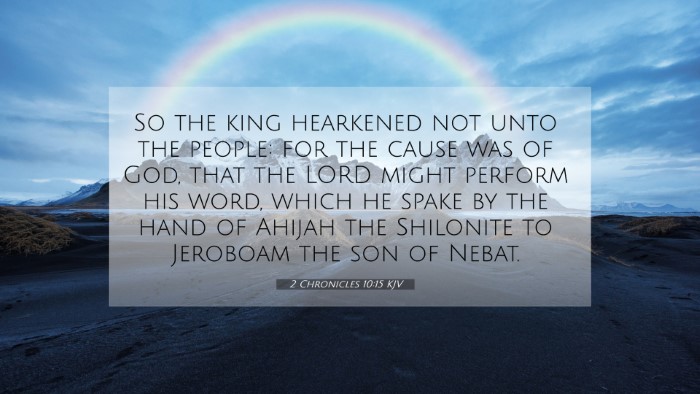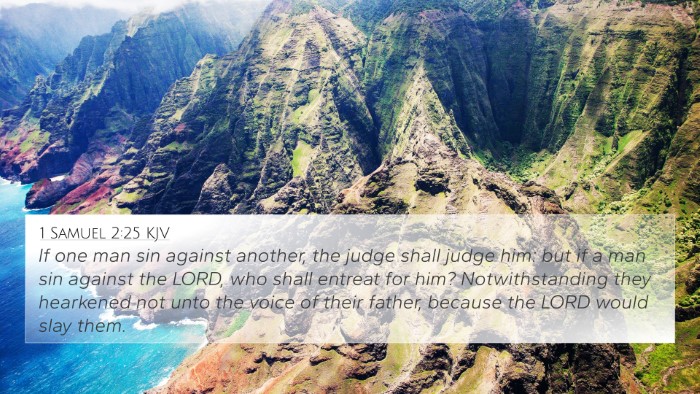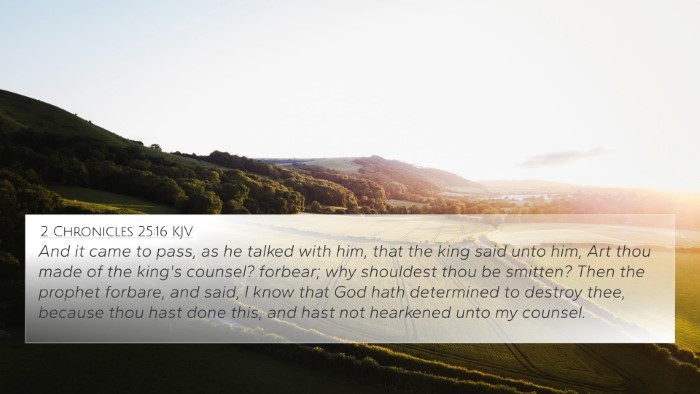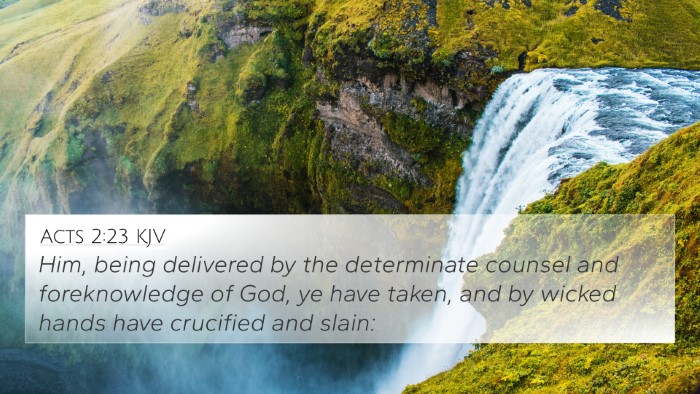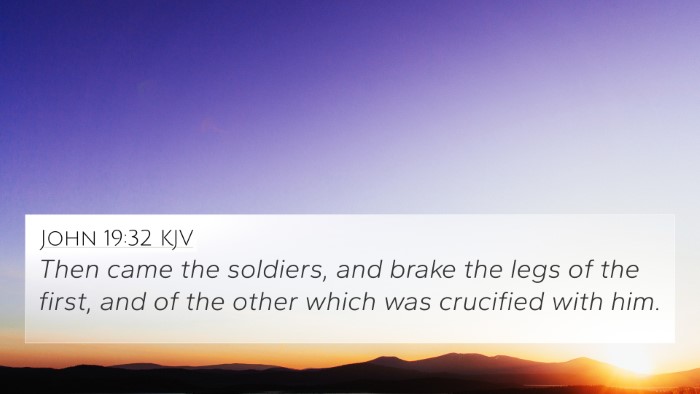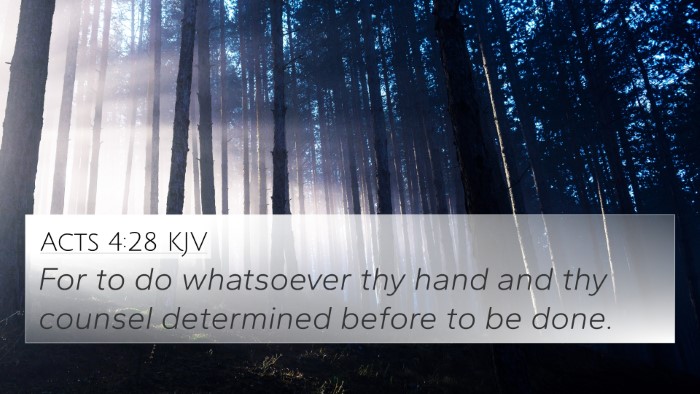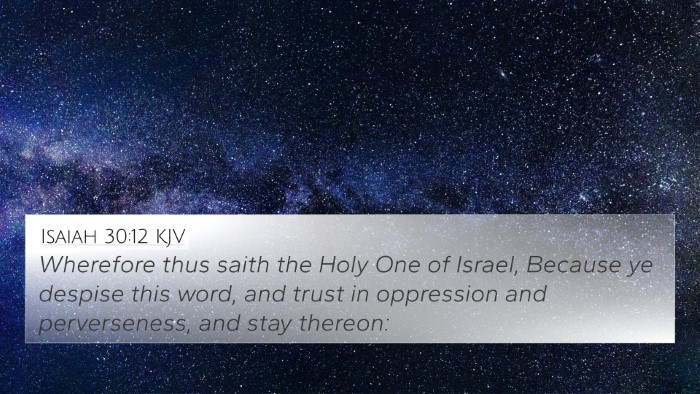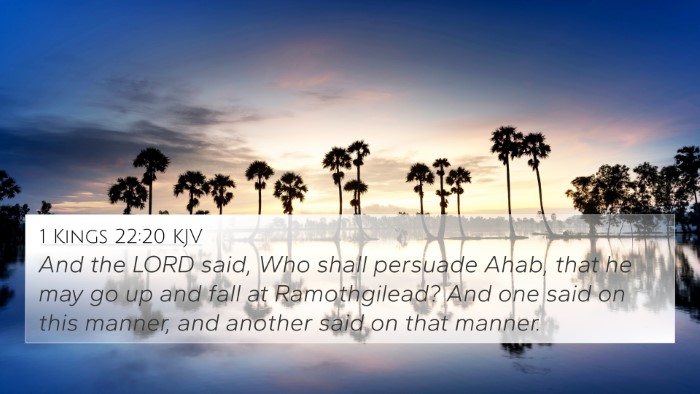Understanding 2 Chronicles 10:15
Verse Reference: 2 Chronicles 10:15 - "So the king did not listen to the people, for the turn of events was from God, that the LORD might fulfill His word which He had spoken by Ahijah the Shilonite to Jeroboam the son of Nebat."
Summary of the Verse Meaning
This verse addresses the pivotal moment in Israel’s history when Rehoboam, King Solomon’s son, chooses to ignore wise counsel from the elders and instead listens to the younger, more reckless advisors. The text reveals that this decision was a part of God’s sovereign plan, ensuring that the prophecy concerning Jeroboam would come to pass. Thus, what seems to be a human choice is framed within the divine orchestration of events.
Insights from Public Domain Commentaries
- Matthew Henry: He emphasizes the importance of recognizing God’s hand in the events of our lives, suggesting that Rehoboam’s refusal to heed the voice of the people was not only a personal failure but also a fulfillment of divine prophecy. This highlights the interplay between free will and divine sovereignty.
- Albert Barnes: Barnes notes that Rehoboam's decision reflects the consequences of poor leadership and a lack of discernment. The author points out that the King's action was a direct result of his ambition to solidify power rather than serve the people, leading to the nation's division.
- Adam Clarke: Clarke provides historical context, stating that the situation was a culmination of previous royal decisions that alienated the northern tribes. He asserts that God’s prophecies are inexorable, and this moment illustrates His control over Israel's fate, channeling circumstances to fulfill His promise.
Cross-References and Connections
This verse connects with several other scriptures, illustrating the thematic continuity across the Bible. Below are some relevant cross-references:
- 1 Kings 12:15: Affirms that the king did not heed the people's request, mirroring the events of 2 Chronicles 10:15.
- 1 Kings 11:29-39: Discusses Ahijah's prophecy concerning Jeroboam, providing background for the fulfillment noted in our key verse.
- 2 Samuel 7:14-16: God’s promise to David about his lineage, which sets the context for understanding God's sovereignty in regnal matters.
- Isaiah 10:6-7: Illustrates God's use of powerful rulers to achieve His purposes, akin to Rehoboam's moment of choice.
- Proverbs 16:9: "A man’s heart plans his way, but the LORD directs his steps," emphasizing God's ultimate authority in human decisions.
- Jeremiah 18:7-10: Highlights the responsive nature of God to the actions of leaders and peoples, suggesting a theme of God's control in earthly affairs.
- Romans 9:17: Reflects on Pharaoh, noting that God raises some leaders to demonstrate His power, paralleling Rehoboam’s moment of testing.
- Matthew 26:56: In fulfilling prophecy, Jesus notes that all happened "that the Scriptures of the Prophets might be fulfilled," tying in the theme of divine foreknowledge and purpose.
- Acts 2:23: Talks about Jesus' crucifixion occurring by God’s predetermined plan, reinforcing the concept of God directing historical events.
- Revelation 17:17: Speaks to God putting it into the hearts of leaders to accomplish His will, drawing a line back to the control over kings seen in 2 Chronicles.
Thematic Bible Verse Connections
In this verse, we can see themes of leadership, prophecy, and divine sovereignty. Rehoboam's reign serves as a poignant reminder of the significance of counsel in governance, the danger of pride, and the overarching control of God in history. By cross-referencing this text with others, we can deepen our understanding of how these themes are represented consistently throughout the scriptures.
How to Use Bible Cross-References
To gain a fuller understanding of the textual implications of 2 Chronicles 10:15, one can use tools such as a Bible concordance or a Bible cross-reference guide. By identifying key phrases or themes, readers can explore interconnected stories across the Old and New Testaments, gaining insights into the larger narrative of scripture.
- Step 1: Identify key terms from the verse (e.g., "king," "people," "God’s word").
- Step 2: Use a Bible reference resource to find related verses.
- Step 3: Analyze how each reference contributes to understanding the main verse.
Conclusion
2 Chronicles 10:15 serves as a powerful testament to the intersection of human choice and Divine purpose. Through strategic cross-referencing, readers are equipped to grasp the complexities of Biblical narratives and gain deeper insights into God's plans. As we explore connections between Bible verses, we are reminded of the continuous dialogue within scripture that enriches our understanding of faith and leadership.


